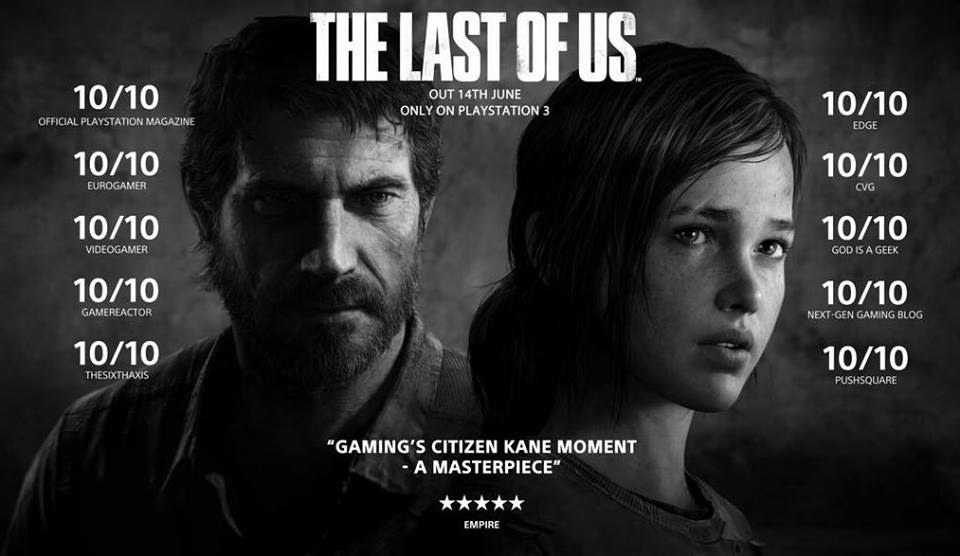Well, yes. I’ve argued again and again that gender, race, class, and all sorts of social constructions can be influenced by the way those things are depicted in entertainment media like video games. But, I’m a hypocrite. I would also argue against anyone who claims that violence in video games makes kids more violent. In fact, I’m more inclined to feel the opposite: that using games as a way to play out social taboos allows kids the space to experiment without material consequences.
So, can I have it both ways? Can video games influence the way the player interprets the world without influencing their behavior? It feels inconsistent to me. But, of course, it is never that simple.
I’d like to propose that different parts of video games effect us in different ways. And thus, saying that games like GTA don’t lead to violent behavior, yet also saying that they perpetuate negative stereotypes as “normal” behavior and thus influence how we interpret the world, is not inconsistent. What a sentence. Let me break it down.
1. Games don’t explicitly change our behavior.
What I mean is that I’m not going to go out and start a farm because of Farmville; I’m not going to join the mafia because of MafiaWars; I’m not going to do any of the things the protagonists in my video games do. It’s pretend.
2. Games do implicitly change our behavior.
The peripheral elements in games is where their persuasive power lies. For example, Farmville is not going to convince me to be a farmer. But Farmville says that only two gender categories exist; Farmville recognizes the life cycle of plants; Farmville supports the (capitalist) fallacy of unending progression; Farmville accepts the exchange of goods and services for symbolic capital. I could go on and on. The way Farmville changes our behavior is far more subtle than proponents of video games=violence can admit.
Now that this argument is made (and I realize there are things overlooked and oversimplified. But it’s sort of the gist of what I’m getting at), let me get to my actual post. I played a game yesterday, called It Girl, and I just don’t know what to say about it. Basically, you go shopping to get clothes that give you hotness points. Then you go to a party and have a “showdown” with another girl. If she is hotter than you, has a bigger clique, or a better closet, you lose confidence. I made a short video to sum it up:
So, if my argument holds true that the explicit pieces of the game are not what we should be worried about, what the hell do I do with this?





3 thoughts on “Do video games influence social constructions in meat space?”
~alex,
smart thoughts. here’s some food for thought:
1. this game is a remediation of any number of meat space competitions. or, rather, perhaps this is a gamification of meat space relationships. how does this notion change your stance towards the difference you present between changes to action versus implicit changes. what happens when we gamify relationships and self-reflection? for me, this discussion might need to include the idea of affect.
2. when you discuss the concept of implicit change are you talking about the affective nature of gaming. i haven’t seen very many people in gaming deal with affect and gaming, but this seems quite relevant here. Anderson (2006) claims that “the emergence and movement of affect enable the multiplication of forms of life because they takes place ‘in excess’.” I think your example not only takes place in excess but that the result is, indeed, affective. I’m not sure what kinds of further connections you might make between affect and gaming, but i think there’s much work to be done there. especially if we see it as a concept that can link feminist studies, embodiment, and gaming.
just food for thought
I think the video game violence meme is wrong not because video games cannot influence behavior, but because it is grossly oversimplified. It muddles cause and effect. People make and respond to media in ways that are related to their culture. Violence in film and video games can reinforce violent ideas, but it does not create them. There was plenty of violence in American culture before video games (actually, violent crime rates have been going down during the time that video game play has been dramatically increasing). A person with violent sexist attitudes is most likely to enjoy and seek out “prostitution killing” activities in GTA, or to seek to buy games known for such things in the first place. So, the in game activity reinforces a problem that is already there. That is why GTA is less likely to increase things like murder rates, where the activity is generally socially unacceptable already, but more likely to feed into more socially accepted problems like subtle or verbal sexism.
Which explains why “itgirl” is high on the problematic scale, because the negative ideas it reinforces are very similar to negative ideas that already abound within the culture.
I wish I had time to digest your article and write a worthy response; but, sadly, I don’t. I do think your explicit/implicit binary has value; if anything most video games reinforce a Romantic, heroic, individualist notion of agency constructed around the autonomous agent. Your post resonates with Jonathan McCalmont’s article “Seeing Like a State: Why Strategy Games Make Us Think and Behave Like Brutal Psycopaths.” Summing up a range of TBS and RTS strategy games, McCalmont concludes:
“What all of these games have in common is a tendency to make even the most liberal of gamers behave like brutal tyrants. For the player of strategy games, little computer people serve only as a means to an end. We do not care about whether or not our little computer people are happy, we only care about whether or not they are productive. If they are not productive then they are in our way and little computer people who get in the way of their players tend to wind up brutalised, enslaved and dead.”
There is certainly an underlying ethos to these games straightout of Heidegger’s “Question Concerning Technology,” one in which all things are (en)framed as means to an end, one which promotes an instrumentalist-efficient way-of-thinking and way-of-being-in-the-world. It would seem to me quite naive to assume that such a way of being/problem solving doesn’t continue to influence me after I turn the power off.